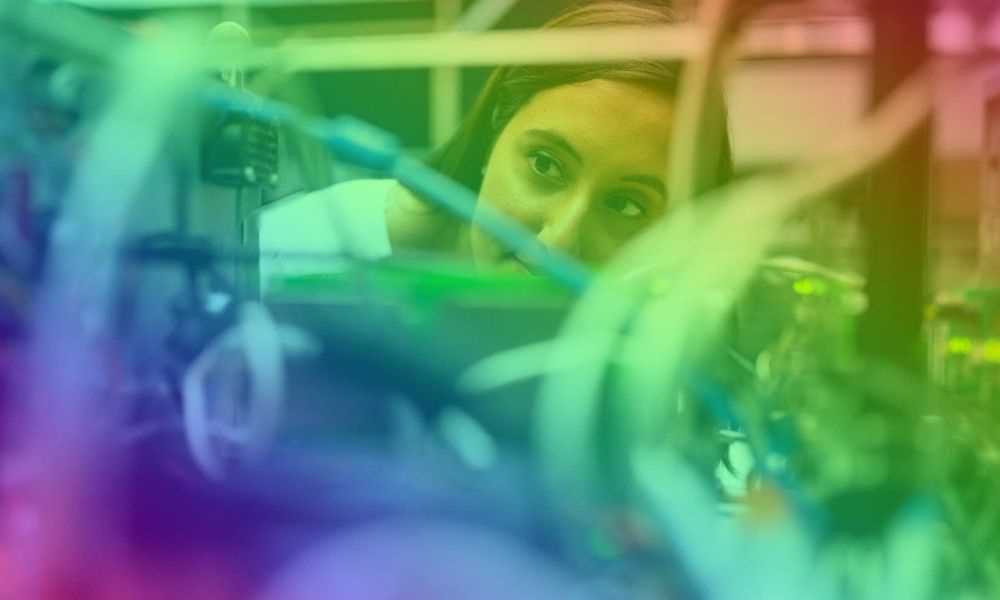
In this post, the authors reflect on their experience of running a 60 minute online workshop on diversity and inclusion in the curriculum for the Learning & Teaching Conference with a focus on translating issues of diversity and inclusion into a Science & Engineering setting…
In December 2019, one of us (HC) sent an email inviting us to develop a proposal for a 60 minute workshop on diversity and inclusion in the curriculum for the University of Edinburgh’s Learning & Teaching Conference (L&TC). In one way or another, each one of us had thought about similar challenges, for example decolononizing a Physics curriculum, embedding diversity and inclusion in Engineering curriculum renewal, and integrating the needs of international students in our learning and teaching.
The common challenges we had all identified were: 1) University activity in this arena has so far proved difficult to translate into a Science & Engineering setting and 2) implementation tends to rely on local champions who can feel isolated and unsure of the best way to initiate and ultimately embed change in their subject area. Hence, we proposed a workshop that would provide a space for participants to develop and share their current questions and concerns around establishing diverse and inclusive curricula in their contexts.
Our proposal was accepted and so on 18 June 2020 we ran our workshop in an online version of the L&TC (Scotland was in the early stages of emerging from COVID-19 lockdown). The workshop started with a brief introduction from us, after which the participants were split into breakout groups, which reported back to plenary at the end of the workshop. Breakout topics ranged from “Embedding diverse voices, topics, and methods” to “Hybrid teaching to enhance D&I in our curricula”.
Though this was the first time we ran a workshop like this via Collaborate, anecdotal evidence suggests that the workshop ran well (in no small part due to excellent support from the L&TC team!). Reports from the breakout groups suggested that discussions had been constructive. Several excellent suggestions were contributed to the plenary, including (but not limited to!): in-class discussions about knowledge generation, embedding co-creation from an early stage [1], and supporting widening-participation students to talk about their experiences [2]. We have also established a Teams space for participants to continue the discussion(s) after the workshop.
So what did we learn? Some emerging themes for us are:
- There are several examples of good practice (both within and beyond our University) although there is work to be done in translating many of these examples across disciplines and Colleges;
- Making it easier for enthusiastic teachers to find best practice examples is likely to be important for ensuring that we routinely embed diversity and inclusion in our curricula; and
- Including the experience and insights of our students in curriculum design is likely to be a key component in successful curriculum design and delivery.
There is ample food for thought here, so from a content point of view, the workshop was successful! However, we also got the impression that most of the voices contributing to the workshop discussions were from the College of Arts, Humanities and Social Sciences (CAHSS). In principle, this is good. We think our CAHSS colleagues have extremely valuable contributions to make to this discussion.
However, one of our goals was to kickstart a discussion about developing diverse and inclusive curricula in STEM. Either we did not manage to attract many CSE colleagues to our workshop and/or we did not manage to hear their voices during the workshop. In this respect, the workshop was not successful…
Having said that, we never envisioned the workshop to be the ‘end point’. First, we intend that our Teams space will become a forum for asynchronous discussion on diverse and inclusive curricula across the whole University. Secondly, we intend to organize regular, cross-College seminars and (panel) discussions on this topic, thereby hopefully normalizing the discussion about diversity and inclusion, including in CSE curricula.
Finally, as we move into a new academic year, we really wish to bring student voices into this discussion. Current ideas include co-hosting relevant events with, among others, Edinburgh University Women in STEM [3], the Black Ed Movement [4], and the ENGAGE network [5]. If you would like to get involved in the discussion, join our Teams space and/or let us know that you’re interested in future events by dropping one of us a line or completing this short form!
[1] Catherine Bovill, Co-creating Leaning and Teaching, Critical Publishing, St Albans (2020) [2] https://levelwithme.org/ (last accessed 20 July 2020) [3] https://www.euwistem.com/ (last accessed 20 July 2020) [4] https://studentnewspaper.org/tackling-racism-on-campus-black-ed-in-conversation-with-peter-mathieson/ (last accessed 20 July 2020) [5] https://www.ed.ac.uk/institute-academic-development/learning-teaching/connect/engage (last accessed 20 July 2020)





